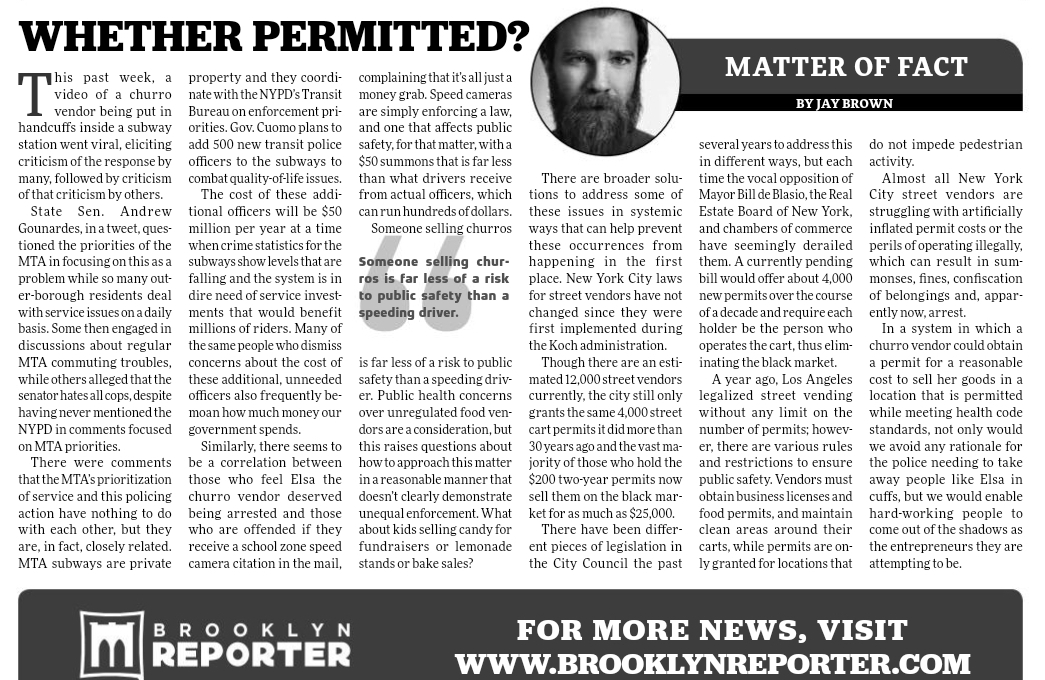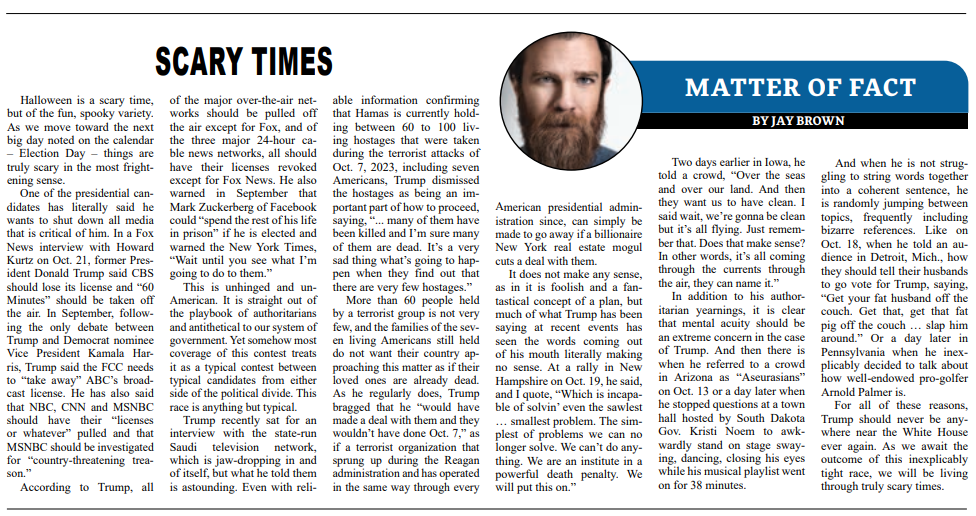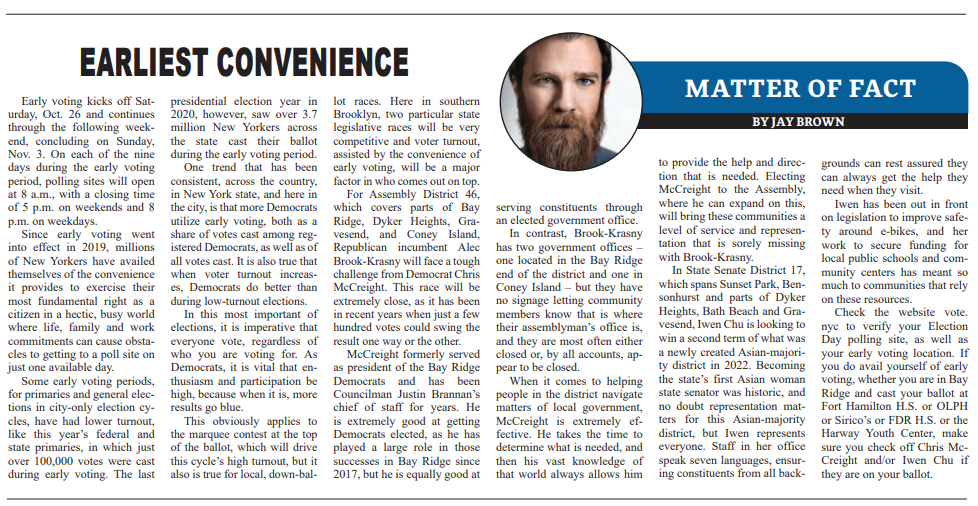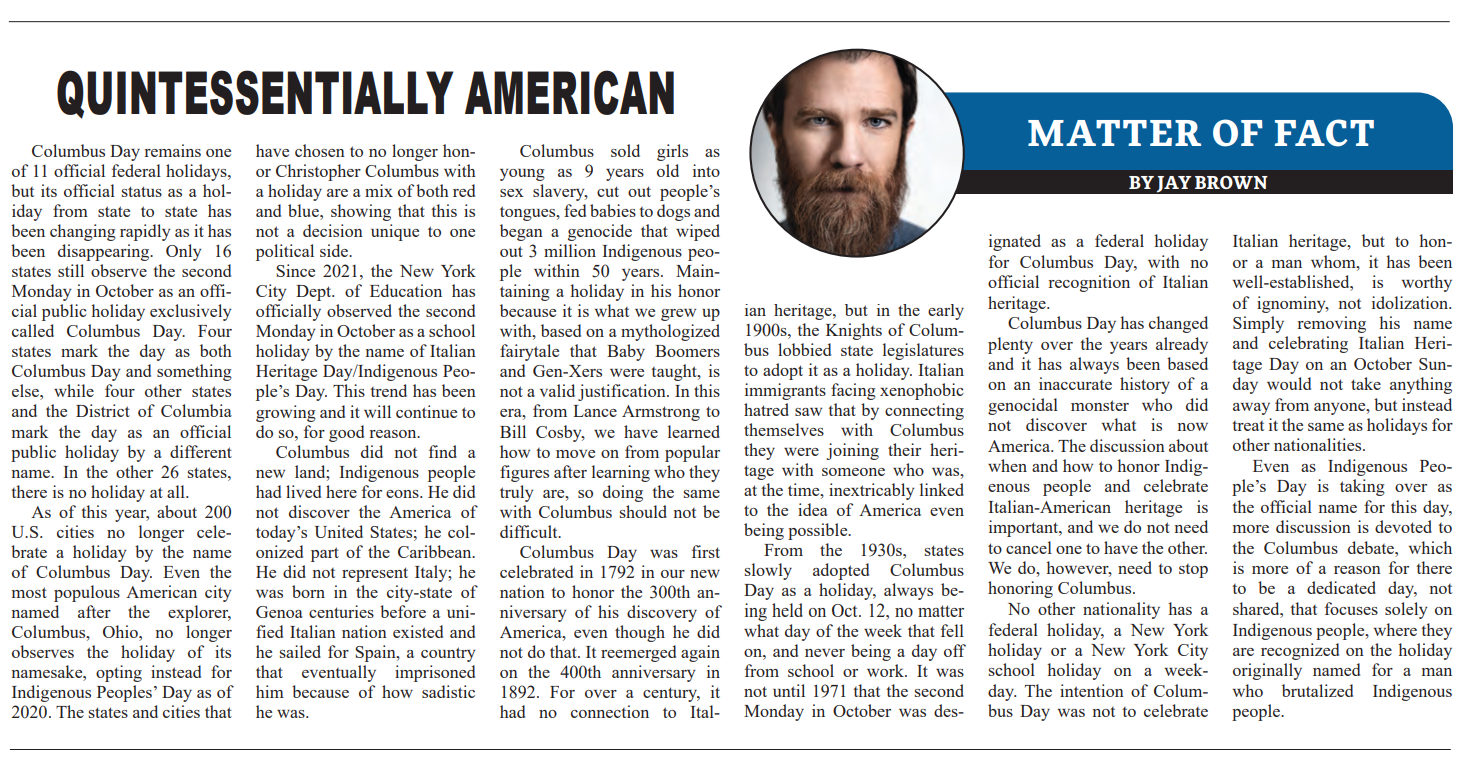This column, from the weekly opinion piece MATTER OF FACT, first appeared in the Home Reporter and Spectator dated November 15, 2019
This past week, a video of a churro vendor being put in handcuffs inside a subway station went viral, eliciting criticism of the response by many, followed by criticism of that criticism by others.
State Sen. Andrew Gounardes, in a tweet, questioned the priorities of the MTA focusing on this as a problem while so many outer-borough residents deal with service issues on a daily basis. Some then engaged in discussions about regular MTA commuting troubles, while others alleged that the senator hates all cops, despite having never mentioned the NYPD in comments focused on MTA priorities.
There were comments that the MTA’s prioritization of service and this policing action have nothing to do with each other, but they are, in fact, closely related. MTA subways are private property and they coordinate with the NYPD’s Transit Bureau on enforcement priorities. Gov. Cuomo plans to add 500 new transit police officers to the subways to combat quality-of-life issues.

The cost of these additional officers will be $50 million per year at a time when crime statistics for the subways show levels that are falling and the system is in dire need of service investments that would benefit millions of riders. Many of the same people who dismiss concerns about the cost of these additional, unneeded officers also frequently bemoan how much money our government spends.
Similarly, there seems to be a correlation between those who feel Elsa the churro vendor deserved being arrested and those who are offended if they receive a school zone speed camera citation in the mail, complaining that it’s all just a money grab. Speed cameras are simply enforcing a law, and one that affects public safety, for that matter, with a $50 summons that is far less than what drivers receive from actual officers, which can run hundreds of dollars.
Someone selling churros is far less of a risk to public safety than a speeding driver. Public health concerns over unregulated food vendors are a consideration, but this raises questions about how to approach this matter in a reasonable manner that doesn’t clearly demonstrate unequal enforcement. What about kids selling candy for fundraisers or lemonade stands or bake sales?
In a system where a churro vendor could obtain a permit for a reasonable cost to sell her goods in a location that is permitted… we would enable hard-working people to come out of the shadows as the entrepreneurs they are attempting to be.
There are broader solutions to address some of these issues in systemic ways that can help prevent these occurrences from happening in the first place. New York City laws for street vendors have not changed since they were first implemented during the Koch administration.
Though there are an estimated 12,000 street vendors currently, the city still only grants the same 4,000 street cart permits it did more than 30 years ago and the vast majority of those who hold the $200 two-year permits, now sell them on the black market for as much as $25,000.
There have been different pieces of legislation in the city council the past several years to address this in different ways, but each time the vocal opposition of Mayor Bill de Blasio, the Real Estate Board of New York, and chambers of commerce have seemingly derailed them. A currently pending bill would offer about 4,000 new permits over the course of a decade and require each holder be the person who operates the cart, thus eliminating the black market.

A year ago, Los Angeles legalized street vending without any limit on the number of permits; however, there are various rules and restrictions to ensure public safety. Vendors must obtain business licenses, health food permits, and maintain clean areas around their carts, while permits are only granted for locations that do not impede pedestrian activity.
Almost all New York City street vendors are struggling with artificially inflated permit costs or the perils of operating illegally, which can result in summonses, fines, confiscation of belongings and, apparently now, arrest.
In a system where a churro vendor could obtain a permit for a reasonable cost to sell her goods in a location that is permitted while meeting health code standards, not only would we avoid any rationale for the Police needing to take away people like Elsa in cuffs, but we would enable hard-working people to come out of the shadows as the entrepreneurs they are attempting to be.




